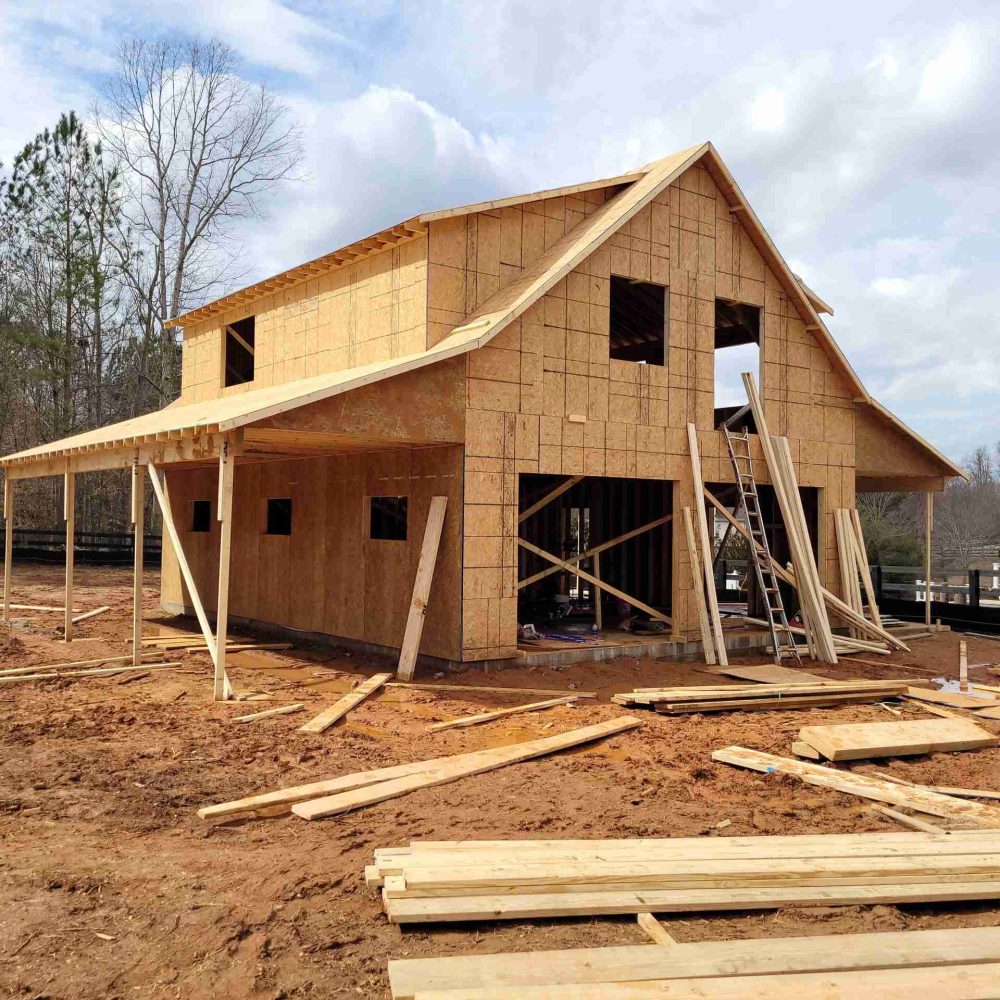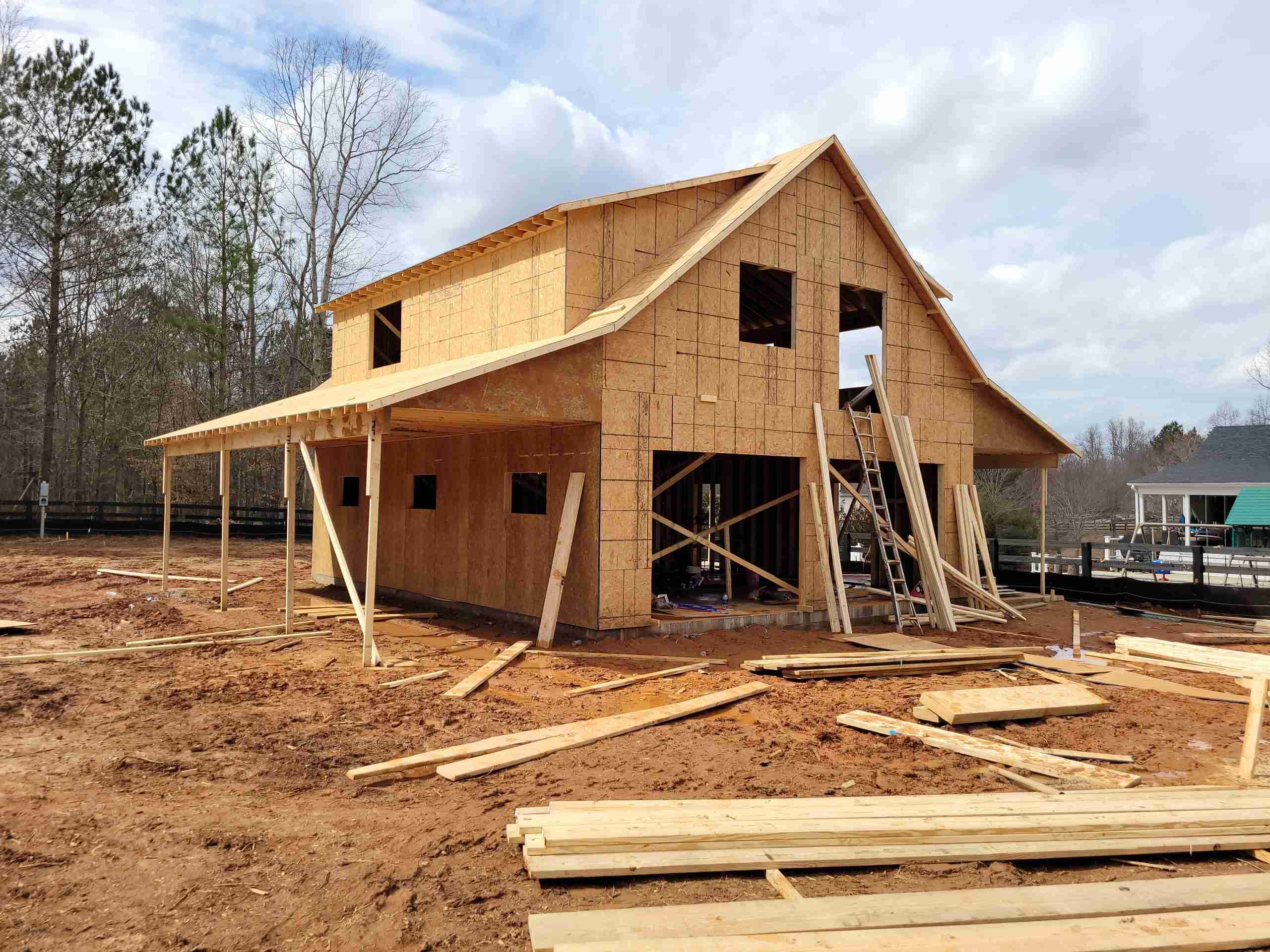How do I finance a new construction home?
Are you considering building your dream home? Figuring out how to finance a new construction home can be a bit trickier than buying a resale.
Don’t worry – we’ve got you covered!
We’re here to provide essential guidance and knowledge on the steps needed for financing a new construction / new build home. In this blog post, we’ll discuss some of the important things to consider before committing to financing options and some of their associated risks and benefits.
Whether you are buying your first home or adding another project to your real estate portfolio, these tips will help ensure that you are taking an informed approach to finding funding for your new property.
Understand the Different Types of New Build Home Loans
When it comes to buying a new build home, financing the purchase can seem like a daunting task. However, understanding the different types of new build home loans can help simplify the process. One popular option is a construction loan, which is designed to fund the building process and is typically converted into a permanent mortgage once the home is completed.
Another option is an FHA 203(k) loan, which can be used to finance both the purchase of the home and necessary renovations. Additionally, there are traditional mortgages and special programs specifically for first-time homebuyers. By exploring these options and working with a trusted lender, the dream of owning a new build home can become a reality.
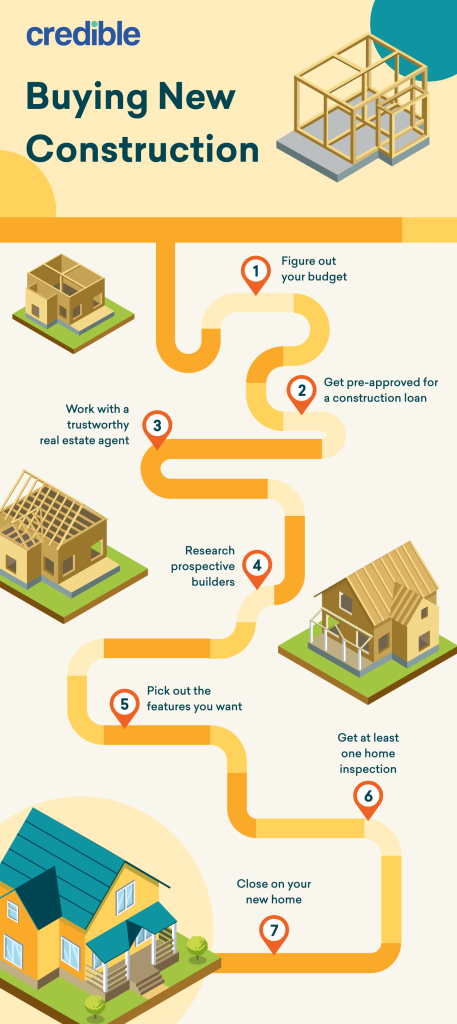
Check Your Home Buying Budget
Congratulations on your decision to purchase a home! Before jumping into the search for the perfect home, it’s important to determine your home-buying budget. There are many financial factors to consider such as down payment, monthly mortgage payments, property taxes, and homeowner’s insurance. It’s also important to factor in any potential maintenance or repair costs.
Starting your search with a clear understanding of what you can afford will save you time and disappointment in the long run. Consider meeting with a financial advisor or mortgage lender to determine your budget and find the best financing options for your unique situation. With a solid budget in place, you’ll be on your way to finding your dream home in no time!
Find a Lender Who Specializes in New Builds
When it comes to financing a new build, it’s important to find a lender who specializes in this type of loan. While many traditional lenders offer construction loans, a specialized lender will be well-versed in the specific needs and nuances of building a home from scratch.
Not only will they be able to guide you through the loan process, but they’ll also be able to offer valuable insights and advice on the building process itself. Working with a specialized lender can give you peace of mind knowing that you’re in good hands and your new build is on the right track from the get-go.
Obtain Pre-Approval for Financing to Maximize Your Negotiating Power
Securing a pre-approval for financing is a savvy move that can give you a leg up when negotiating with potential sellers. Essentially, pre-approval means that a lender has reviewed your finances and has agreed to lend you a certain amount of money.
Pre-approval is beneficial for several reasons, including providing you with a realistic budget, speeding up the loan process, and giving you greater negotiating leverage.
With pre-approval in hand, you’ll have a better idea of what you can afford and may be able to negotiate lower prices or better terms with a seller. It’s important to note that pre-approval isn’t a guarantee of a loan, but it can certainly put you in a good position to secure one.
Consider Qualifying for Down Payment Assistance Programs
If you’re in the process of purchasing a home, you might be feeling overwhelmed by the sheer amount of expenses that come with it. One of the largest costs is the down payment, which can seem insurmountable, especially for first-time homebuyers. Fortunately, there are down payment assistance programs available that can help make owning a home a reality.
These programs offer various forms of financial assistance, from grants to loans, to help cover the upfront costs of buying a home. Although the qualifications for these programs vary depending on location and income, it’s worth looking into them as an option to ease the burden of homeownership.
Financing a new construction or new build home can be an intimidating process, but with the right guidance and research, it’s an achievable goal for many. It’s important to understand the different types of financial products available as there are many lenders who specialize in new builds and offer unique loans built to fit the needs of those purchasing a home. Additionally, be sure to check your budget and obtain pre-approval ahead of time in order to maximize your negotiating power.
Mortgage options vary, so take the time to research which is best suited for you, and don’t forget to consider any down payment assistance programs that could benefit you. Ultimately, with a bit of knowledge and willingness to do the work, financing a new construction or home may actually be more attainable than you first believed.
Buying a home is a big investment, and for most people, it requires obtaining a mortgage. But financing a new home can feel overwhelming, especially for first-time buyers. There are many factors to consider, including your credit score, debt-to-income ratio, and the types of loans available.
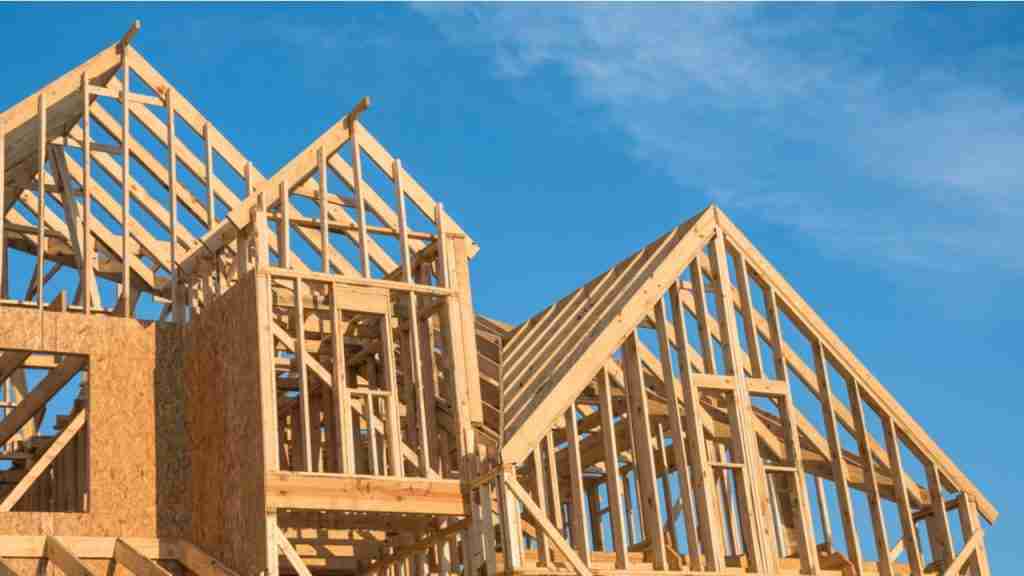
Here is an overview of how to finance your dream home, and what you need to know before applying for a mortgage.
1. Check your Credit Reports
Your credit score is one of the most significant factors that lenders consider when deciding whether to approve your mortgage application. It’s essential to check your credit reports from all three major credit bureaus (Experian, TransUnion, and Equifax) to ensure that there are no errors or inaccuracies. You can obtain your credit reports for free once a year from each of these bureaus by visiting AnnualCreditReport.com. If you notice a mistake, you should dispute it with the credit bureau, as any incorrect information may negatively impact your credit score.
2. Gather Necessary Documentation
When you apply for a mortgage, lenders will require you to provide a range of financial and personal documents. These documents may include tax returns, bank statements, pay stubs, and proof of identity and residency. It’s essential to gather these documents before the application process begins to ensure that the process goes as smoothly as possible. Some lenders may also require additional documentation, so it’s helpful to stay organized and keep all paperwork in one place.
3. Determine How Much You Can Afford
Before you start shopping for homes, it’s essential to determine how much you can afford to borrow. Lenders will use your debt-to-income ratio (DTI) to calculate the maximum mortgage amount you qualify for. Your DTI is a comparison of your monthly debt payments to your monthly pre-tax income. Typically, lenders prefer a DTI of 36% or less. It’s helpful to estimate your DTI before applying for a loan to ensure that you can afford the monthly mortgage payments.
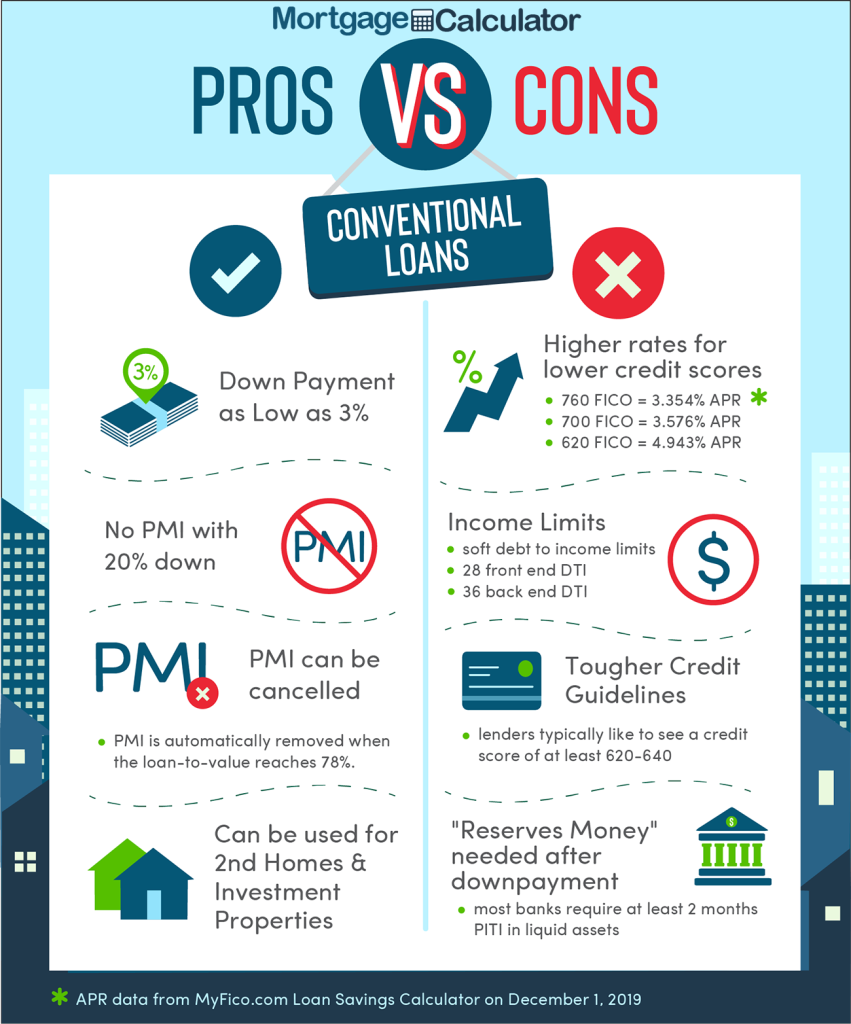
4. Explore Different Types of Mortgage Loans
When shopping for a mortgage, you’ll come across various types of loans, including FHA, VA, and conventional loans. Each type of loan has unique eligibility requirements, interest rates, and terms. Additionally, builders may offer new home construction loans for buyers purchasing a new home from them. It’s helpful to research and compare the different loan options to determine which one is the best fit for your financial situation.
Whether you’re a first-time homebuyer or a seasoned real estate investor, it’s important to do your research and understand the different types of mortgage loans available to you. With the right loan, you can confidently move forward with your home-buying journey and achieve your dream of homeownership.
5. Consider Bridge Loans
Sometimes, homeowners may need additional financing to purchase a new home while still owning their current one. In this case, a bridge loan may be useful. A bridge loan is a type of short-term financing that borrowers can use to bridge the gap between purchasing a new home and selling their current property. However, bridge loans often carry higher interest rates and fees, so they may not be the best option for everyone.
6. Compare Financing Packages from Builders
If you’re purchasing a new home from a builder, they may offer financing packages with certain incentives or benefits. These packages may include lower interest rates, closing cost credits, or freeing up cash for upgrades in your new home. It’s helpful to shop around and compare the financing packages from different builders to determine which ones offer the best terms and affordability.
Additional things to consider
When it comes to financing your dream home, there are many factors to consider. It’s essential to check your credit report for errors, gather necessary documentation, and estimate how much you can afford to borrow.
Additionally, researching the different types of mortgage loans and comparing financing packages from builders can help you find the best fit for your financial situation. Remember to seek the advice of a financial professional if needed and take the time to shop around for the best rates and terms. With careful planning and research, you can successfully finance your dream home and enjoy the benefits of homeownership.
When it comes to financial planning, it’s important to ask the right questions early on to avoid any surprises down the road. One key question to ask is whether your credit report is accurate – this can provide insight into your credit score, which affects your ability to qualify for loans, leases, and credit cards.
You’ll want to gather all the necessary documentation related to your income, assets, and debts. This includes items like pay stubs, tax returns, bank statements, and investment account statements. Taking the time to check your credit report and gather important documents early on can save you time and hassle later on in the process.
Buying a home is a significant financial decision, and it’s vital to determine how much can be afforded in terms of a mortgage. It may be tempting to go for the maximum amount that a lender is willing to loan, but this approach can lead to financial strain later. That’s because the monthly mortgage payment is just one aspect of homeownership expenses.
Other costs may arise, such as property taxes, insurance, maintenance, and repairs. Therefore, it’s important to consider all the expenses associated with owning a home and determine a comfortable budget for a mortgage payment. This approach can help ensure that homeownership is a positive and manageable experience.
In conclusion
When embarking on a home construction project, builders may offer financing options that seem too good to pass up. While incentives like lower interest rates or waived fees can be appealing, it’s crucial to do your research and compare different loan packages. Failing to shop around could result in missed opportunities for better terms, leaving you with unnecessarily high loan payments in the long run. By taking the time to investigate your options and speak with multiple lenders, you can ensure that you’re making the most informed, beneficial financial decision for your unique needs.
If you enjoyed this post, You’ll love our “Everything You Need to Know about New Construction Financing and Loan Options ” post here!

